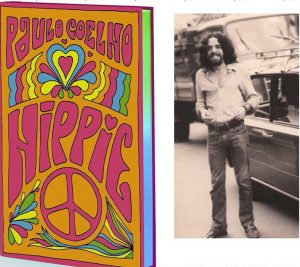
In the hustle and bustle of our daily lives, we often find ourselves entangled in the web of societal expectations, pursuing success in our personal and professional spheres as if they hold the key to happiness.
The words of Paulo Coelho’s novel, The Zahir, prompt us to question whether this relentless pursuit of fame and accomplishment is leading us towards genuine happiness or merely masking a deeper discontent.
Coelho’s words echo a sentiment that many of us may have felt but failed to articulate – the reluctance to confront our unhappiness. The novel suggests that the very act of questioning our happiness may lead us to discover a virus that can erode the fabric of our contentment.
It beckons us to ponder whether success in our careers, familial bliss, or material possessions is the ultimate key to happiness, or if there lies a deeper, more fulfilling journey beyond these conventional markers.
Going through the pages of The Zahir

As we go through the pages of The Zahir, we encounter individuals who, despite external appearances of happiness, are consumed by the demands of their busy lives.
The novel unveils a harsh truth about the society we live in—many are too preoccupied with work, familial responsibilities, and societal expectations to truly introspect and identify their genuine sources of joy.
he novel brings to light the paradox of modern existence – the pursuit of happiness through external accomplishments while neglecting the internal fulfilment that is often elusive.
Coelho masterfully unravels the inner workings of the human psyche, exposing the silent desperation that resides in even those who claim to have it all.
So, are we, as a society, unwittingly becoming slaves to the pursuit of fame, success, and societal validation? The novel challenges us to question the very foundations of our aspirations, encouraging us to look beyond the superficial definitions of a fulfilled life. It invites us to explore the possibility that our preconceived notions of happiness may be limiting our potential for genuine, lasting joy.
Coelho’s narrative serves as a mirror, reflecting the silent discontent that many harbours within themselves. The unspoken sadness, even unbeknownst to those who carry it, is palpable in their eyes. This leads us to question whether the societal constructs of success and happiness have blinded us to the possibility of finding fulfilment in simpler, more personal pursuits.
In a world where the pursuit of fame and success often dictates the course of our lives, The Zahir challenges us to break free from these chains. It encourages us to explore happiness beyond the conventional markers of accomplishment—beyond the relentless climb up the professional ladder and the societal pressure to conform to predefined norms.
The answer
So, are we slaves to fame and success? The novel invites us to emancipate ourselves from these perceived shackles, urging us to embark on a journey of self-discovery. Happiness, it suggests, may lie not in external validations but in the authenticity of our pursuits and the fulfilment of our true desires.
As we reflect on Coelho’s words, let us pause to consider our own lives. Are we content with the narrative we are living, or is it time to rewrite our stories, embracing the pursuit of happiness on our terms?
In the end, The Zahir whispers to us, inviting us to cast off the chains that bind us, to rediscover happiness in the uncharted territories of our hearts.



















